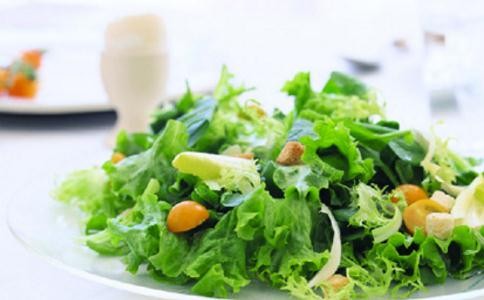Scientifically Vegetarian, 9 Tips for Vegetarians
'Apology'用'My apologies for the delay'致歉 #生活技巧# #职场沟通技巧# #商务英语口语#

According to the Huffington Post, there are now more and more vegetarians, including many celebrities in the entertainment industry and politics, who have begun to advocate for the elimination of animal products. However, it is not so easy to be a strict vegetarian, and the following 9 questions are what vegetarians need to pay attention to.
Be mentally prepared to be vegan
Vegan nutritionist Julieanna Hever pointed out that when people challenge conventional eating habits, it is inevitable that they will have conflicts with family and friends, family members may dissuade you, and you will lose some opportunities to have dinner with friends, this is the time to test your psychology, why should you become a vegetarian? Do you have a strong and firm reason in your heart? If not, then it is likely that you will give up because of the words of the people around you.
Vitamin B12 supplementation is required
Vitamin B12 is most likely to be deficient in vegans, as this nutrient is almost non-existent in plant foods. B12 helps keep nerves and blood cells healthy and DNA is synthesized. B12 deficiency can lead to drowsiness, weakness, constipation, weight loss, nerve problems, and depression. So some vegetarian people are prone to depression or mental disorders. The main sources of vitamin B12 are meat, eggs, milk, and seafood. If you don't eat meat anymore, then you still have to drink some milk and yogurt. Studies have found that milk has a higher vitamin B12 utilization rate than meat, and the consumption of dairy products is most effective in raising blood vitamin B12 levels based on the same amount of vitamin B12 in foods.
Iron supplementation is required
Iron comes in two forms: heme iron and non-heme iron. 40% of heme iron is derived from animal products and is easily absorbed by the body. Vegans can only consume non-heme iron, which is not easily absorbed by the body, so vegetarians need to consume more iron to maintain good health. Plants rich in iron are: legumes, sunflower seeds, raisins, and dark leafy greens. Foods high in vitamin C such as chili peppers, citrus, broccoli, etc., can promote iron absorption.
Eat plenty of protein-rich foods
Valerie Rosser, a Montreal vegan nutritionist, points out that we need protein at every meal. Protein is the building block of the body's tissues, which are broken down into amino acids that aid in cell growth and repair. The American Academy of Medicine recommends that adults should consume 0.8 grams of protein per kilogram of body weight per day, or 54 grams of protein per day if you have 68 kilograms. Rosser points out that protein-rich foods are soybeans, lentils, quinoa, etc.
Say no to junk food
Bread and crackers made with fine white flour, sugary drinks, and other types of fast food can make your vegan diet fail. Being vegan is not eating junk food. Rosser points out that processed foods give us only calories, no nutritional value, and nutrients are almost destroyed during processing.
Beware of fake meat made from soy protein
At present, there are many vegetarian restaurants that use soy protein to make imitation meat food, including vegetarian chicken, vegetarian duck, vegetarian fish, etc., and there are still many debates in the nutrition community about this kind of food. However, it is certain that some meat substitutes are highly processed and contain excessive amounts of sodium and preservatives, so it is important to distinguish the ingredients carefully. Healthy legumes can be eaten with unprocessed soy products such as tofu, soy milk, bean curd, and boiled edamame.
Don't rush things
If you've been a big fish and meat before, it's hard to be vegan in a day. When you decide to go vegan, you can slowly add more plant-based foods to your diet, especially rejecting unnatural, processed meats first. In this process, always pay attention to the changes in your body and take steps to ensure success.
A vegetarian diet keeps you emotionally stable
Being vegan isn't just good for animals and the environment, it's good for us too. A 2012 study in the journal Nutrition found that a non-vegetarian diet contains more arachidonic acid than a vegetarian diet, which stimulates nerve changes and causes low mood.
Plants can also meet your calcium needs
A study in a European journal found that when vegetarians consumed 525 mg of calcium per day, they had a similar risk of fracture as non-vegetarians. The point is to eat plenty of different types of natural foods that are high in calcium. For example, beans, fungi, and green leafy plants are rich in vitamin D, which can help the body absorb calcium.

网址:Scientifically Vegetarian, 9 Tips for Vegetarians https://www.yuejiaxmz.com/news/view/976114
相关内容
Vegan Health: Scientifically Vegetarian Top 10 Tips for VegetariansScientific Vegetarian 9 tips for vegans
Want to be a vegetarian?Pay attention to additional nutrition
The impact of vegetarian life on us, the more vegetarian the healthier
The more vegetarian you are, the healthier you are
Vegetarian life six pay attention to teach you to eat vegetarian can also be nutritious
Vegetarianism is the healthiest! A peek into the vegetarian life of those female stars
The impact of vegan life on us! The more vegan, the healthier!
Differenttypesofvegetarians(素食主义者的类型).ppt 文档全文免费预览
Chen Long: Vegetarian life is a combination of human drama

